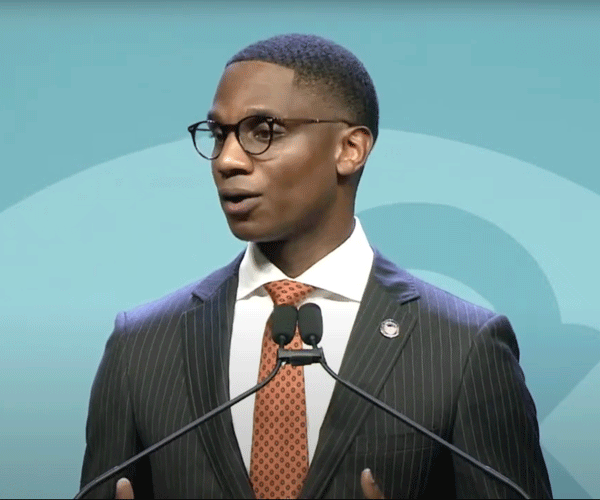Other than clean up the old mayor's messes, hire good people, communicate well and be nice, What has Jane Campbell done for Cleveland? I asked that question in November 2002, when Cleveland Magazine profiled the smart, likable, well-intentioned people in the new mayor's cabinet. Halfway into Campbell's term, the city's still waiting for a good answer.
The mayor appeared on our cover with her five chiefs, looking resolute. Since then, she's nudged out or reassigned three of those chiefs. Even Tim Mueller, the cabinet's chief development officer and charismatic star, who preached a need for urgency in the administration, has a new role in strategic planning.
The urgency Mueller said City Hall needed seems to be missing today. Campbell the diplomatic problem-solver has become Campbell the competent caretaker. Once-troubled departments such as finance and law are running smoothly. But that's not enough.
Cuyahoga County has lost 62,000 jobs since 2000. It's dawned on people that those jobs may not come back.
During the mayor's long honeymoon, people patiently awaited a bold plan to revive Cleveland's renaissance. But sometime after her 2003 State of the City address, with its 20-point chart, they started asking, Is this all there is?
So, this February, City Hall watchers whispered that Campbell's new State of the City had to be the speech of her career, an inspiration that would focus her energies and the city's. Instead, she gave a solid speech, with boilerplate about optimism in tough times, backed by her usual laundry list of small goals and victories.
Campbell does have a few visionary ideas: bringing Cleve-land's population back above 500,000 by 2010 (Mueller's new job) and building more housing, especially along a reinvented lakefront. The city ranked first in the county for new housing starts in 2003, but only got halfway to Campbell's goal of 1,500 new homes. The lakefront could be her legacy someday, but new Shoreway designs and a 20-year plan for shoreline homes aren't solving immediate problems. New businesses breaking ground would.
To her credit, the mayor said jobs are now her first priority. But the speech was thin on concrete progress: two tech parks, new housing planned near the Galleria, a new Cleveland Clinic building, a House of Blues. It'll take four times as many projects to jump-start Cleveland.
Ehe best parts of Campbell's speech were the most feisty. She jabbed The Plain Dealer for playing class warfare with her lakefront housing plan. She defended the Cleveland schools, which the state says are out of "academic emergency," against those who doubted they could improve. She insisted that regionalism shouldn't grab the city's resources and neglect its needs. She took a hard line on balancing the $61 million deficit without raising taxes — though police and firefighters want her head as revenge for the layoffs.
She'll need to be even bolder, crusade for the city and convince scores of new businesses to invest here. The mayor, the county commissioners and business community need to get past the convention-center debacle, make peace and work together on those deals. City council could do her a favor by pressuring for more results.
Last fall, I asked council president Frank Jackson how he thought Campbell was doing. He sounded as if he'd break into a yawn any second. He was impressed that city services hadn't gotten worse.
"With this job, it takes a while to just get familiar with things and put your people in place," he said. "I would expect that next year will be [when] she'll begin to implement . . . the things she wants to do."
When asked what advice he'd give Campbell, Jackson said, "I wouldn't be so presumptuous."
Maybe Cleveland needs more leaders with an iron will — not a stubborness that escalates our battles. We need truly talented leaders who take risks, set agendas, motivate people to work together and get things done.
Leaders outside City Hall still feel urgency. I asked Dave Abbott, president of the Gund Foundation, his advice for the rest of Campbell's term. "She should vocally and very clearly articulate the real scope of our challenges," he offered. "I don't think people in this region fully grasp the radical changes that have occurred in the world that demand a new way of doing things." That means, he added, speaking with one voice as a region while making radical changes in "how we govern ourselves, how we create jobs, how we care for people in need and how we educate young people."
"She needs to be a drum major for the kind of change we need," Abbott said. "If we don't all get outside our day-to-day responsibilities and start thinking more broadly, we're dead."
That's a pretty clear choice.



